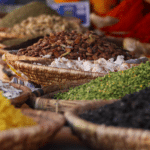In the Spring of 2014, a Project CBD delegation embarked upon a fact-finding and fact-sharing expedition in Uruguay, the first country to legalize the production, sale, and distribution of marijuana. During our ten-day visit, we met with health professionals, educators, musicians, human rights activists, cannabis growers, and government officials.
Symbols of marijuana were conspicuous in Montevideo, the Uruguayan capital, where pot-leaf T-shirts were sold on street corners and loudspeakers blared reggae and hip hop. Joints circulated freely at an outdoor rock concert we attended the night after our arrival. Cuatro pesos de propina (Four pesos for a tip), the hot headline act, attracted a diverse, weed-smoking crowd, including many young people from the cantegriles, the slums of Montevideo.
It’s estimated that 14 percent of Uruguayans between 16 and 64 have used marijuana. We sampled some homegrown in Cabu Polonio, a beachside squatters’ settlement on the Atlantic Ocean. But high quality cannabis was hard to find in this beef-exporting nation of 3.3 million people and three times as many cows. Bereft of better sources, many Uruguayans were smoking prensado paraguyo, a compressed, foul-smelling brick of leaves, glue, fesces, and chemicals, smuggled in from Paraguay.
The possession and consumption of small quantities of cannabis had been decriminalized in Uruguay since the 1970s. But cultivation, sale, and distribution remained illegal until December 2013, when this small Latin American country broke ranks from the U.S.-led drug war juggernaut and announced it was pulling the plug on marijuana prohibition. “Someone has to be the first,” said Uruguayan President Jose (“Pepe”) Mujica. “The repressive path has failed.”
That failure is resoundingly evident in Latin America, the recipient of more than $20 billion in U.S. military aid during the last decade, most of it earmarked for the disastrous war on drugs. Plan Columbia, the U.S. scheme to pulverize a cocaine-producing country with an iron fist, fostered the spread of organized crime throughout the region and set the stage for the horrific bloodletting in Mexico, which has claimed more than 100,000 lives in the past seven years. President Mujica became a champion of marijuana legalization “to free future generations from this plague.”
A former Marxist guerrilla fighter who survived 14 years in a military prison, Mujica sees marijuana legalization first and foremost as a human rights issue, an opportunity to opt out of the vicious cycle of violence that has terrorized Latin America. The Broad Front, Uruguay’s leftist governing coalition, views the war on drugs as a form of neocolonialism, a brutal instrument of U.S. imperialism. Ending cannabis prohibition is essentially an anti-imperialist policy.
“Our initial focus is on stopping the drug war, ending the violence and crime. That’s why we favor a legal recreational market. We want to keep otherwise law-abiding citizens away from clandestine arrangements,” explained Augusto Vitale, deputy director of the Uruguayan cabinet ministry in charge of drug policy.
After implementing reforms to regulate the recreational use of cannabis, according to Vitale, the Uruguayan government will focus on harnessing marijuana’s multifarious medical applications.
Uruguay has also been at the forefront of international public health campaigns to restrict tobacco consumption. In 2009, the Broad Front passed a law requiring that cigarette packs be covered 80 percent by health warnings, such as graphic pictures of cancer victims. Uruguay’s willingness to defend its policy in court against tobacco giant Phillip Morris fits in with other progressive social reforms enacted by the Mujica government, including the legalization of same-sex marriage and abortion. In addition, Mujica has sought to remedy income inequality by redistributing wealth and providing free computers for every Uruguayan child. But almost certainly history will remember him as the president who legalized marijuana.
Uruguayan officials insist they aren’t trying to impose their views on other countries, but they maintain they have a sovereign right to forge their own path and explore new approaches to an old problem. Unlike state governments in Colorado and Washington, Uruguay refuses to levy a tax on marijuana sales. It doesn’t seek to profit from a tightly regulated cannabis indistry, preferring instead to keep the price of marijuana as low as possible to undermine black market commerce.
If all goes according to plan, marijuana will be cultivated by government-certified growers and sold at low cost in pharmacies only to registered adults, but not to tourists; production will never exceed local demand. Unlike the Dutch model, which regulates the sale but not the production of cannabis and hashish, the Uruguayan government is in charge of the entire industry—from cultivation to consumption.
Raymond Yan, president of the UN’s International Narcotics Control Board, accused Uruguay of having a “pirate attitude” and warned that marijuana legalization would “endanger young people and contribute to the earlier onset of addiction.” But Uruguay’s bold initiative has drawn support from other Latin American leaders who are open to a major shift in hemispheric drug policy.
…and Uruguay Visits Project CBD
Laura Blanco, director of the Association of Cannabis Studies, a nongovernmental organization in Uruguay, discussed her country’s trailblazing drug policies when she visited the United States in May. Blanco spoke at the annual Women’s Visionary Conference in Petaluma and at a private event in the East Bay hosted by activists Chris Conrad and Mikki Norris.
The new law in Uruguay, Blano explained, allows citizens 18 years and older to register with the government to purchase up to 40 grams of cannabis a month for personal use at state-run pharmacies—the cost: a dollar a gram. The law also allows an individual to grow six marijuana plants at home or to join a cannabis club with 15 to 45 members that can collectively grow up to 99 plants. The names of members will remain confidential, she noted.
Blanco’s travel itinerary included meetings at Oaksterdam University to learn about how to launch a cannabis college and a site-visit to Project CBD for a tour de force of cannabis oil extraction equipment, a CBD-rich research grow-op, and an analytical testing lab.
After she returned home, Blanco’s group, the Association of Cannabis Studies, became the first to officially register as a marijuana-growing club. A handful of others in Montevideo and the country’s interior also signed up to grow cannabis on August 28, 2014, the opening day of registration, which was free of charge.
Exactly fifty years ago on the same day, Bob Dylan turned the Beatles on to marijuana in a New York City hotel room.
August 28th—it ought to be a national holiday in Uruguay and the United States.
Martin A. Lee is the director of Project CBD. He’s authored and edited several books, including Smoke Signals, Acid Dreams, and The Essential Guide to CBD. © Copyright, Project CBD. May not be reprinted without permission.







